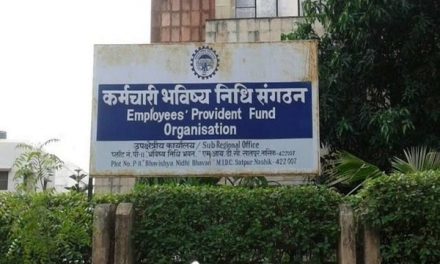The deadline to file income tax returns (ITR) for this financial year (FY 2019-20) has been extended twice- first from July 31 to November 30, 2020, and then to December 31, 2020. It is advisable to file your return before the due date i.e. December 31, 2020. What happens in case you miss the bus and fail to file your ITR by 31st December 2020 for the assessment year 2020-2021? Let us discuss.
Is the due date also the last date of filing of the ITR?
People are generally under the impression that the due date is also the last date beyond which you can not submit your ITR, which is not correct. There are two dates relevant for ITR filing. One is the due date and the other is the last date. In case you fail to submit your ITR by the due date, you can still file it by the last date. The due date for submitting ITR for the assessment year 2020-2021 was 31st July 2020 and stands extended till 31st December 2020. However, the last date is 31st March 2021. However, a few consequences will follow if you submit your ITR after the due date.
What happens if you miss the deadline?
In case you fail to submit your current ITR by 31st December 2010, you can still do so by 31st March 2021 but you lose your right to carry forward any losses to set off against the income of subsequent years. So in case you have loss under the head business income or capital gains or loss beyond two lakhs rupees under the house property head during the current year and which you are otherwise entitled to carry forward for set-off in subsequent years, you will not be able to do so if you miss the 31st December 2020 deadline..
In case the taxes paid by you or on your behalf are more than your tax liability and therefore you are entitled to get a refund for the excess taxes paid, you will not be able to get interested in respect of such excess taxes paid for the period of delay which is attributed towards you. In case the taxes paid on your behalf are lower than your aggregate tax liability, in addition to the interest for such shortfall, you will also have to pay interest for the period of delay in submitting your ITR even if you have already paid the shortfall after 31st March 2020.
Payment of late filing of your ITR after the due date
In addition to the above consequences, you will have to mandatorily pay a late fee at the time of filing of your ITR if the ITR is submitted after the due date. In normal circumstances, you have to pay a late fee of ₹5,000 in case the ITR is submitted by 31st December. However, for the assessment year 2020-2021 since the due date as extended itself is 31st December 2020, you do not have to pay any late fee in case you submit the ITR by 31st December 2020. However, in case you file your ITR after 31st December 2020 but by the last date i.e. 31st March 2021, you will have to pay a late fee of ₹10,000 in case your taxable income is more than five lakhs. The late fee is restricted to ₹1,000 in case the taxable income is below ₹five lakh.
So in case you are required to submit your ITR for any reason like your gross total income over basic exemption limit or due to owning of any assets outside or you being a signatory to any account outside India of having spent on electricity or foreign travel beyond specified threshold limit, you will have to pay the late fee as discussed above in case you file your ITR after 31st December 2020.
What happens if you fail to submit your ITR even by the last date?
Unless the last date for filing of ITR for the assessment year 2020-2021 is extended beyond 31st March 2021 and in case you fail to file it even by 31st March 2021 the income tax department can levy a minimum penalty equal upto 50% of the tax which would have been avoided by you, in addition to the income tax and interest liability till the date you ultimately file your ITR in response to the notices from the tax department.
Only a few people know that the government has powers to launch prosecution against you and put you behind bars if you do not file your ITR. The present income tax laws prescribe a minimum sentence of three years of imprisonment and a maximum of seven years. It is not that the department can launch prosecution against you in each instance of failure to file the ITR. The income department can launch prosecution only in case the amount of tax sought to be avoided exceeds ₹10,000.
I am sure after reading this article you have made up your mind to file your ITR before 31st December 2020.












